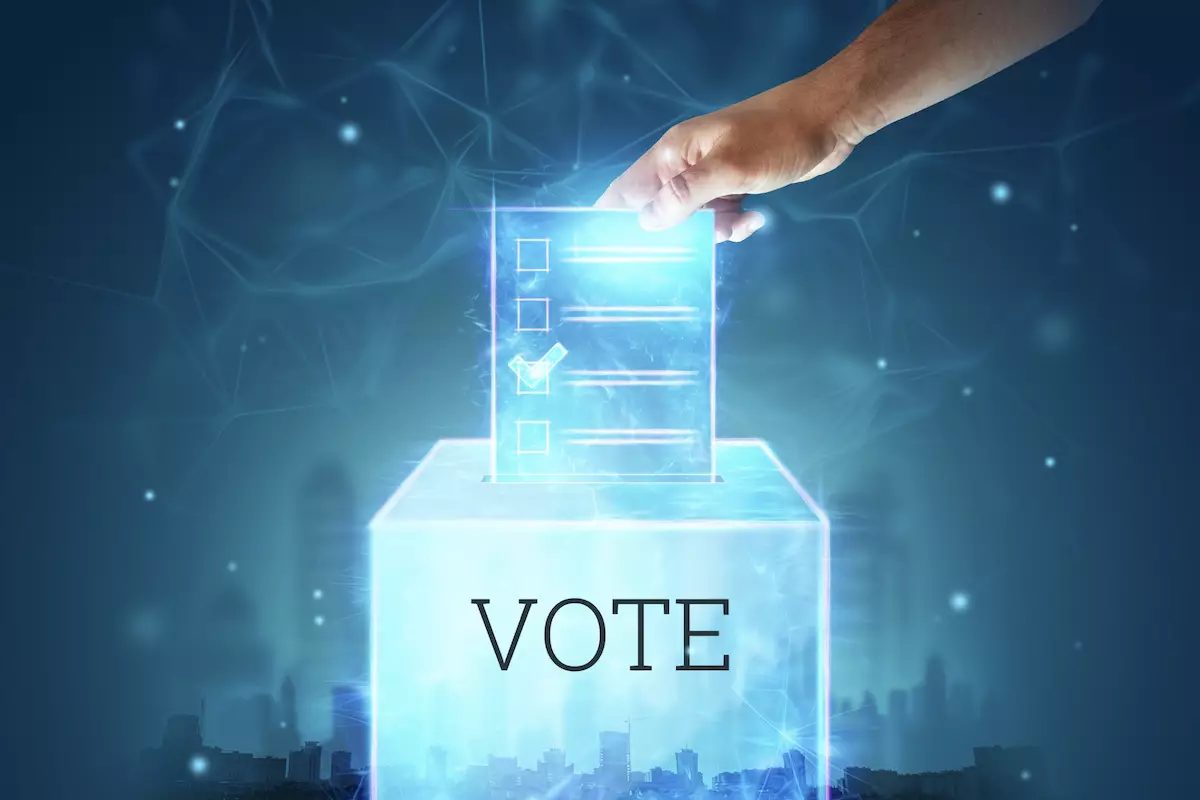The integration of blockchain technology into voting systems poses intriguing possibilities for enhancing the democratic process. With the promise of increased transparency, security, and efficiency in election procedures, blockchain can potentially transform how citizens participate in governance. However, this technology is still grappling with various challenges, raising critical questions: Is blockchain an ideal answer to modern electoral dilemmas?
Understanding Blockchain Voting
At its core, blockchain is a decentralized digital ledger that records transactions across multiple computers, making any alterations extremely difficult and nearly imperceptible. When applied to voting systems, each ballot cast would be stored on a blockchain, thereby safeguarding against fraud and manipulation. The allure of this system is particularly potent in regions where the integrity of elections is frequently questioned. Proponents argue that blockchain could restore faith in electoral processes by ensuring that every vote is securely recorded and retrievable.
The recent developments in Romania highlight the viability of blockchain voting. In the upcoming 2024 presidential elections, the nation plans to provide voters with the ability to monitor real-time vote counts through a blockchain framework. This initiative reflects a significant shift toward transparency, allowing voters to track how their ballots are processed and counted, which could bridge the gap of mistrust experienced in various political landscapes.
A noteworthy advantage of blockchain voting lies in its capacity to enhance accessibility for all voters. Traditional voting methods often present hurdles for individuals with mobility concerns, those living in remote areas, or anyone facing scheduling conflicts on election day. Digital ballots cast via blockchain open doors for participation that were previously closed off to many, enabling voters to interact from their homes.
The cost-effectiveness of implementing blockchain systems cannot be ignored either. By reducing dependence on physical polling stations and eliminating paper ballots, resources can be redirected, potentially leading to significant savings in election administration. For instance, Switzerland’s trial of blockchain voting in Zug demonstrated the robust technical capabilities of this system, laying the groundwork for wider adoption.
Challenges on the Road to Blockchain Adoption
However, the transition to blockchain voting is fraught with challenges. Security remains a paramount concern, as the technology, despite its robustness, may still be vulnerable to cyber threats. Attackers could manipulate votes before they are recorded or exploit vulnerabilities in the systems that manage voter identities. Furthermore, the aspects of privacy and ballot verification require a delicate balance; voters must be assured that their choices remain confidential, yet still be able to confirm that their votes were counted correctly.
Governments also face considerable obstacles when considering blockchain adoption. Establishing the requisite infrastructure demands significant funding, comprehensive training for election officials, and extensive public education efforts to familiarize citizens with this advanced system. For nations already facing weaknesses in their current election processes, this shift could stretch resources thin, demanding careful strategizing and financial planning.
Leading by Example: Romania’s Experience
Romania’s experiments in blockchain voting are a notable case study in the growing acceptance of this technology in electoral processes. Initiatives that began during the 2020 parliamentary elections, aimed at ensuring secure but transparent voter turnout data, showed promising outcomes. By actively engaging in blockchain-based voting rules, Romania is paving the way for democratic nations grappling with election integrity issues to explore innovative solutions.
The country’s future plans, including connections to the European Blockchain Services Infrastructure, showcase how blockchain might not only enhance local voting systems but could also harmonize processes across borders. A unified digital voting system for the European Union, supported by blockchain technology, could lead to a stronger democratic foundation at the continental level.
In recent discussions, the concept of Soulbound Non-Fungible Tokens (SBTs) has emerged as a potential enhancement to blockchain voting. These unique, non-transferrable digital tokens can serve as digital identification for voters once their eligibility is confirmed. The integration of biometric authentication with these identifiers could bolster security and mitigate the risk of identity theft within the voting framework.
While the potential for leveraging SBTs in voting remains largely speculative, the possibilities they represent showcase an evolving landscape of blockchain applications in governance. However, fundamental concerns regarding privacy and security related to SBTs will need thorough addressing before they become a viable component of the voting process.
Blockchain technology holds remarkable potential to transform electoral systems worldwide, enhancing transparency, security, and accessibility. Yet, as seen through Romania’s initiatives and the broader discussions surrounding this paradigm shift, substantial hurdles remain. Issues of security, costs, and the need for widespread acceptance from the electorate must be navigated carefully.
As advancements continue and as experimental frameworks evolve, blockchain could redefine the landscape of voting in ways unheard of before. The journey may be long, but if blockchain surmounts these challenges, it could herald a new era of democratic participation. The stakes are high as technology and governance converge, making thoughtful exploration and implementation more critical than ever.
















Leave a Reply